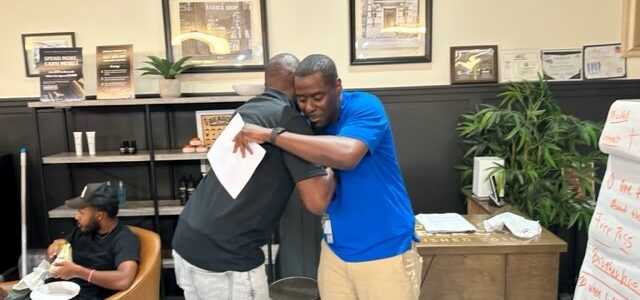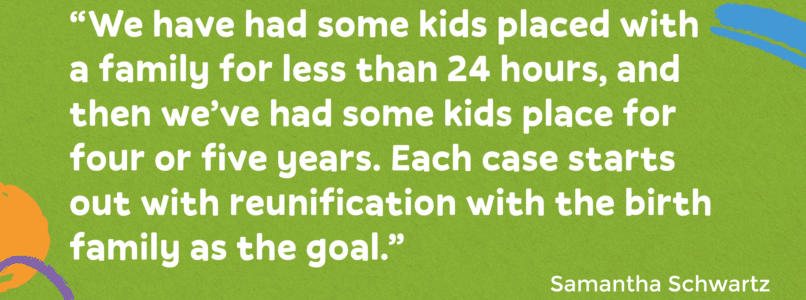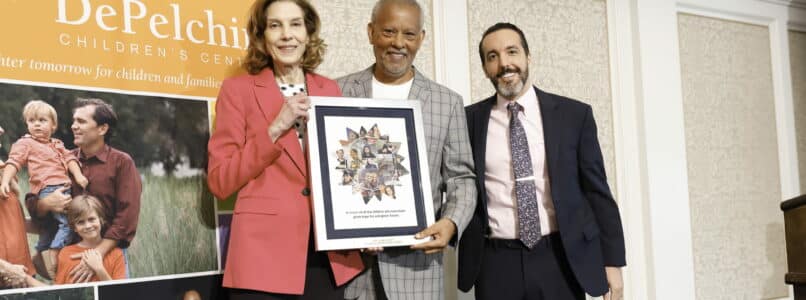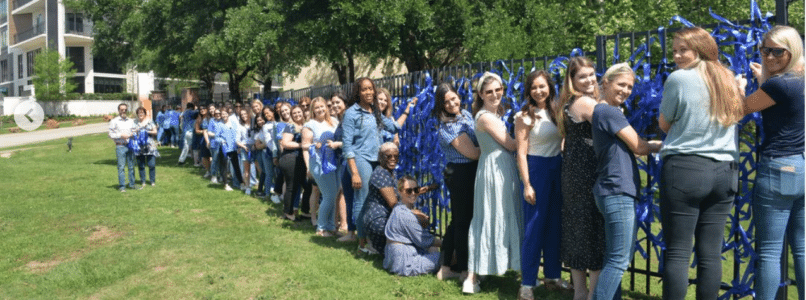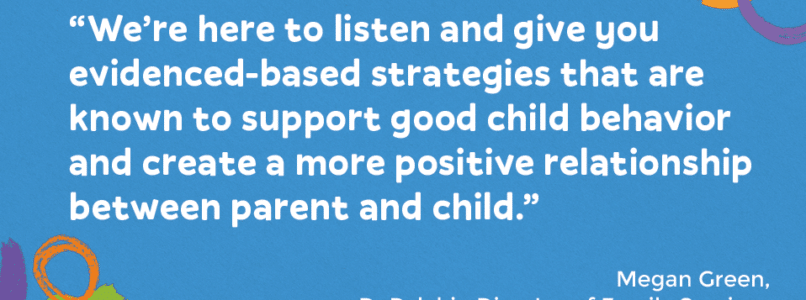One of the major ways that DePelchin serves families is by offering a variety of parenting classes and programs. ParentingHelp, for example, allows parents to receive guidance in small groups or in one-on-one settings. DePelchin also offers programs specifically for fathers and father figures.
All of DePelchin’s parenting programs are free and available to parents looking for some new strategies and approaches to raising their children.
Below, DePelchin Director of Family Services Megan Green answers some common questions about our parenting programs, whom they serve, and how they can be helpful.
Can you briefly describe parenting programs DePelchin offers?
We have a general parenting program, which is parenting classes in the community, where we can go on site and provide a parenting group. We also have one-on-one parenting where we can come in-home and work with the parent individually, specifically on child behavior concerns or any other child development concerns.
We have a fatherhood program where dads or father figures can be a part of a group where the topics relate to men and fathers. And then we have a couples’ or shared parenting group, where they can work together on communication, differences in parenting styles, self-care, and breaking gender roles. We address many critical topics that arise in the shared parenting relationship.
How do parents know if these types of programs could be useful to them?
Kids do not come with an instruction manual, so all parents can relate to the fact that parenting is difficult. We always consider the parent to be the expert, as you know your own child best. What we are here to do is to help you with some ideas for how to create a healthy family and sustain a positive relationship between you and your child. So if it’s a parent who is saying, ‘This is really tough, maybe this child in particular is a little different than the others,” that would be a good reason to call us. Maybe it’s, “I feel very alone, I’m a single parent and I don’t have support and I don’t feel like I have the mental capacity to parent right now.” That would be another good reason to join our programs. It may be a dad, thinking “I’m doing this alone or in a shared parenting role, and there are things about the way I was raised that are affecting me as a father and I don’t want that to transfer to my own children.” Our groups work through real-life concerns like that.
As co-parents, it could be “We aren’t together, but we care about our kids and we want to do this together in a positive way,” or “We’re married, and we’re struggling in our relationship because we don’t agree on parenting stuff.” That’s another good reason to join the shared parenting group.
Who leads these programs?
Our groups and individual parenting services are run by parent educators. Parent Educators have a bachelor’s degree and are knowledgeable about the issues and topics affecting children and their parents. We strive to hire staff who represent our community, so we want staff who understand the various populations that we serve. We have services in English and Spanish so parents who join can be in a group where they feel like they can communicate openly and have someone who can relate to them and understand them.
What do you tell parents who feel like participating in these programs is a sign of defeat?
That’s one of the reasons why we like to say that you are the expert as the parent. We are not here to tell you how to parent. We’re here to listen and give you evidenced-based strategies that are known to support good child behavior and create a more positive relationship between parent and child. Our society is becoming more adaptable to getting help and support and being open to not doing things alone, and that’s how we should view this. Just like you would go to your doctor and get a physical to check in on your physical health, you can go to a parent educator and to get support for your parenting.
What if people do not have the time or capability to come to the DePelchin office for in-person classes?
All of our classes and groups are offered very flexibly. We provide them in the community, where the classes are close by that person, or we host them virtually, where a person can log on from home or wherever they are. We also offer flexible times that work around busy parents and schedules.
What types of changes should parents expect to see in their own parenting style?
A calmer, more structured routine at home. Parents often report that they actually enjoy spending time with their child again. We teach a lot about how it’s not the quantity of time spent, it’s the quality. It’s about what you’re doing with your child each day. We often see a big reduction in parental stress and anxiety, and that improves because they have gained more confidence in managing their family.
Parents will often come to us in a time of need and say, “I need help with my child.” We tell them, “We are actually going to be working through you to change the child.” By the parent making some minor changes and modifications, the child then changes their behavior. That’s a big win for the parent because they gain that confidence and feel proud of themselves.
Why is there a need for programs that are specifically for fathers?
We have found throughout our history that mothers tend to engage more in parenting programs, and we also feel that a lot of the curriculum throughout time has been more tailored to moms or traditional roles. Moms and dads may view and respond to parenting in very different ways, so we have to approach our parenting groups differently. We hire staff and utilize curriculum that relate to the needs of fathers and father figures.
But if you’re a dad, you can still go to something like ParentingHelp?
Yes, definitely. We strongly encourage that fathers participate in all of our parenting programs, especially if they are co-parenting. When both parents participate, the impact is even higher.
Who is eligible for these programs and how much do they cost?
All programs are free. These are open to anyone in Harris and surrounding counties. If you’re pregnant or parenting a child between zero and 18, we have a program that can meet your needs.
How do people sign up, or where should they turn if they have questions?
Go to DePelchin.org, clicking on ”What We Do” and you will find Parenting Services. We also have a ParentingHelp phone line that you can call directly at (713) 802-7777.


